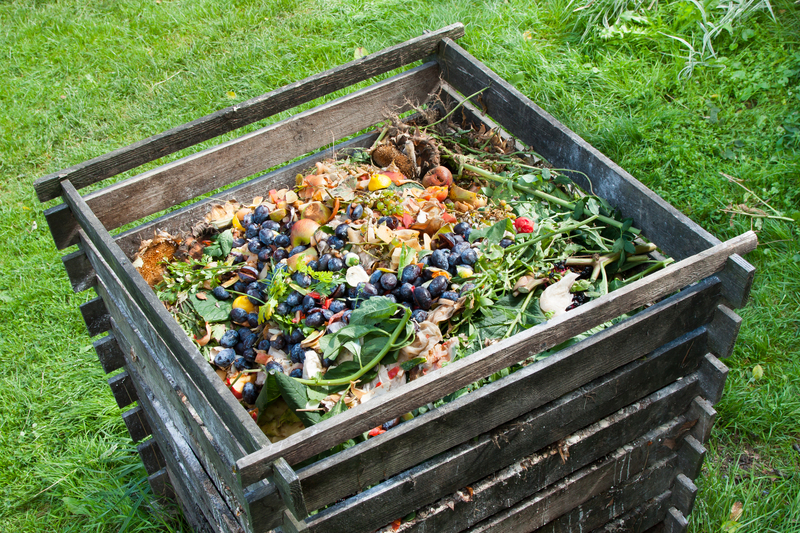Recycling metals is a crucial aspect of sustainable development in our modern world. As natural resources deplete, the importance of recycling, especially metals, becomes increasingly significant. This article delves into the advantages of recycling metals and how it benefits not just the environment but also economies globally.
Understanding Metal Recycling
The concept of metal recycling involves the process of converting waste metals into reusable materials. Metals such as aluminum, copper, and steel are commonly recycled, which helps in conserving energy, reducing pollution, and minimizing the demand for new raw materials.
What Metals Can Be Recycled?
- Aluminum: One of the most recycled materials due to its widespread use and easy recovery process.
- Copper: Often recycled because of its substantial value and the extensive energy required for new production.
- Steel: Recyclable without loss of quality, making it a staple in the recycling industry.
- Brass: Frequently recycled, especially in plumbing and electrical applications.
- Lead: Recycled primarily from old batteries and other industrial products.

Environmental Benefits of Metal Recycling
Recycling metals offers multifaceted environmental benefits. Reducing landfill usage and conserving natural habitats are just the start of what metal recycling achieves. Let's delve into more specific advantages:
Conservation of Natural Resources
Recycling metals significantly lowers the requirement for mining new ores. This preservation not only saves natural resources but also prevents the extensive environmental disturbance caused by mining activities.
Energy Efficiency
Mining and manufacturing new metals consume substantial amounts of energy. Recycling typically requires less energy; for instance, recycling aluminum saves up to 95% of the energy needed to produce it from raw materials.
Reduction in Greenhouse Gas Emissions
By recycling metals, industries can reduce their carbon footprint. The recycling process emits considerably fewer greenhouse gases compared to the entire cycle of mining, refining, and manufacturing new metals.
Economic Advantages of Metal Recycling
Besides the environmental impacts, metal recycling also plays a pivotal role in the economy. It not only fosters financial growth by saving costs but also generates employment.
Cost Savings
Producing new metals involves significant costs related to extraction, transportation, and refining. Recycling offers a more cost-effective solution because the processes involved are generally cheaper and require less labor and energy.
Job Creation
The recycling industry is a major source of employment. According to the U.S. Environmental Protection Agency, recycling activities sustain more than a million jobs. This sector demands labor for sorting, processing, and distribution activities, contributing to local economies.
GDP Growth
Recycling industries contribute significantly to Gross Domestic Product (GDP). Through reduced costs and increased efficiency, resources can be allocated to other economic activities, fostering overall economic development.
Technological and Innovative Prowess in Metal Recycling
In recent years, technological advancement has made the recycling of metals more efficient and effective. The implementation of modern technologies helps in the automation of the recycling process, boosting productivity.
Advanced Sorting Techniques
Innovative sorting technologies such as the use of eddy currents, sensors, and magnets help improve the quality and quantity of recovered metals. These advancements streamline the recycling process, making it quicker and more efficient.
Improvements in Melting and Refining Technologies
State-of-the-art smelting furnaces and refining processes minimize metal loss and reduce energy consumption. This results in higher recovery rates and better overall efficiency in metal recycling operations.

Challenges in Metal Recycling
Despite its many advantages, metal recycling faces several hurdles. Understanding and addressing these challenges is critical for further development of the recycling industry.
Mixed Material Complexity
Products often contain different metals attached to other materials, making it difficult to separate and recycle them effectively. The complexity in sorting these materials often leads to inefficiencies.
Market Fluctuations
The recycling industry is prone to market instability. Prices for recyclable metals can fluctuate, affecting the profitability of recycling businesses and their operations.
Consumer Awareness and Participation
Raising public awareness and ensuring active participation in recycling programs remains a challenge. Education and incentives are essential to increase community involvement in metal recycling efforts.
Conclusion
While the challenges are noteworthy, the benefits of recycling metals are undeniably transformative for both the environment and the economy. As technologies evolve and consumer participation increases, the potential of the recycling industry will continue to grow.
We can collectively contribute to a more sustainable world by embracing and enhancing metal recycling practices. Taking these steps will not only conserve our precious natural resources but also shape a healthier planet for future generations.